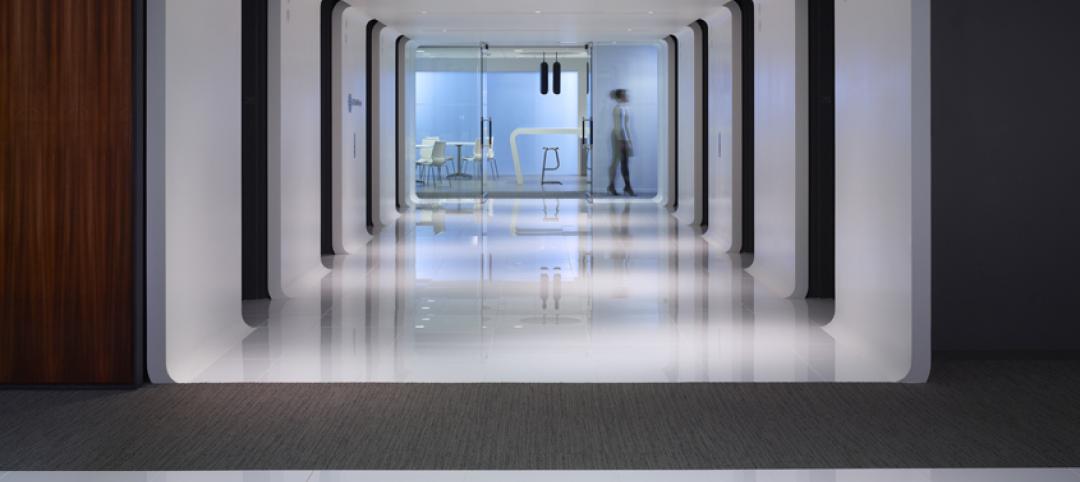“Even a dead cat will bounce if it’s dropped from a high enough altitude,” says an old Wall Street adage. Major economic signals reveal the office building industry is experiencing “a dead cat bounce.”
Sale prices for office buildings enjoyed a moderate bounce to the upside, following the financial crisis of 2007 - 2008. However, the recession and its legacy have vaporized an estimated 275 to 550 million square feet of demand for U.S. office space. While the carnage in the labor market has been slow to influence the office market, the aftershock is beginning to be felt across the country as tenants shed surplus office space.
This assessment comes from B. Alan Whitson, RPA, President of Corporate Realty, Design & Management Institute, and Chair of the Model Green Lease Task Force in a multipart series Office Buildings: The Dead Cat Bounce. In Part One of this series, Whitson zeroes in on changes in the labor market, how it affects demand for office space, and five trends to watch.
“Most pundits have been tracking ‘new unemployment claims’ as their indicator of choice,” says Whitson. “While this worked in past recessions, this time the key is the number of job openings. Before the recession, we averaged 4 million job openings a month. Since the recession ended, job openings have averaged 2.7 million a month. In contrast, layoffs are running 2.1 million a month slightly below the prerecession average of 2.3 million a month. With the economy short 1.3 million job openings every month, a major shake out in the office building market is occurring.”
Five trends to watch from Office Buildings: The Dead Cat Bounce - Part One:
1. Tenants are taking less space, signing short-term leases, and spending less on tenant improvements
2. At 17% vacancy nationwide, tenants are becoming more selective about the space and buildings they lease. Yet, landlords have the upper hand in some submarkets. Tenant that are willing to be flexible and creative can make can make great deals on great space
3. Well-informed building owners will get more creative about the product the offer – work environment vs. square feet
4. Look for an “Uber” class of office buildings to emerge, a combination of location, style, technology, and sustainability. Many 60s, 70s, and 80s era buildings have great locations, good architectural bones and maybe more competitive than some of the newer buildings given a smart upgrade to the skin, mechanical and electrical systems
5. While technology allows us to work anywhere, where we work is becoming more important
As the series moves forward, Whitson will address how these and other changes affect the design, construction, and operation of office buildings. The changing relationship between building owners and their tenants, the leases negotiated, and the types of office buildings tenants are seeking. The goal of the series is to identify the pitfalls to avoid and where to profit from the changes in the office- building marketplace. BD+C
Related Stories
| Mar 7, 2012
LEO A DALY opens new office in Riyadh, Saudi Arabia
Jay N. Kline, Regional Manager – Saudi Arabia, to lead new office.
| Mar 7, 2012
Turner appointed Batson-Cook CFO and treasurer
Cecil G. Hood to continue in advisory role.
| Mar 7, 2012
Thornton Tomasetti names Dowdall VP of Kansas City office
Dowdall will be responsible for supporting the Property Loss Consulting, Building Performance and Building Sustainability practices nationally.
| Mar 7, 2012
LEO A DALY selected to design Minnesota Fallen Firefighters Memorial
The bronze, figurative sculpture of a firefighter rescuing a child, which is currently on display at the Minneapolis/St. Paul International Airport, is lit by natural light through a circular void in the monolith.
| Mar 7, 2012
Houlihan Lokey adds Steffen to Industrials Group
Steffen bolsters group with experience in the building materials and rorest product sectors.
| Mar 6, 2012
Country’s first Green House home for veterans completed
Residences at VA Danville to provide community-centered housing for military veterans.
| Mar 6, 2012
EwingCole completes first design-build project for the USMA
The second phase of the project, which includes the academic buildings and the lacrosse and football fields, was completed in January 2012.
| Mar 6, 2012
Gensler and Skender complete new corporate headquarters for JMC Steel in Chicago
Construction was completed by Skender in just 12 weeks.
| Mar 6, 2012
BLT Architects promotes two to associate
Architect Nicole Dress and interior designer Jessica Moser acknowledged for excellence.
| Mar 6, 2012
Joliet Junior College achieves LEED Gold
With construction managed by Gilbane Building Company, Joliet Junior College’s Facility Services Building combines high-performance technologies with sustainable materials to meet aggressive energy efficiency goals.

















